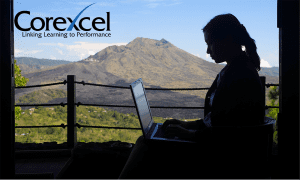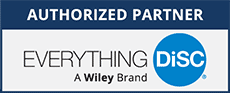An effective way to maximize the potential of a group of coworkers is to identify their individual personality styles through DiSC profiling and establishing communication about how different dispositions relate to one another.
Members of a successful team must become adept at engaging in healthy conflict, committing to a vision, maintaining trust, becoming personally accountable and following protocols that achieve results.
DiSC training breaks down human personality types into four major distinctions that identify people who have a natural inclination for taking charge and making quick decisions (D style) along with others who are more prone to go along with a plan when a sense of team spirit is found in the workplace (i style).
Similarly, DiSC also identifies people who are careful decision makers and will weigh out all of the variables before committing to a course of action (S style) as well as those individuals whose minds are influenced by objectivity rather than intuition or emotion (C style).
DiSC training then elaborates on how the different personality types can be expected to interact in a work environment that encourages trust, healthy conflict, commitment, accountability and results.
Trust is a Must
Establishing trust between coworkers requires that people transform two-dimensional relationships into deeper bonds. The DiSC training assessment system helps coworkers understand one another by identifying individual strengths and weaknesses and making all parties privy to that information.
This way, if a “D” type personality is on a team with someone who is a “S,” that first person will know that it is OK for them to take charge of making split-second decisions. Meanwhile, the “S” personality can be delegated to assimilate large quantities of information to determine the long-term scope and direction of a project.
Knowing the strengths and weaknesses of those you work with mean that you can be better trusted to interact with them accordingly.
Creative Tension
Conflict between coworkers can be healthy when it involves two or more people presenting opposing ideas based on their individual expertise. Rather than avoiding confrontation, as most people prefer, coworkers who have built trust tend to embrace a tense situation because it forces people to express themselves.
With DiSC training, after your team members have expressed themselves and listened to opposing opinions, they can then come to a mutually agreeable compromise based on a strategy that will result in goals being met.
This can also be described as a passionate presentation of solutions to problems. Through this process, all are encouraged to share their opinions and propositions so that goals can be identified through the collective knowledge of the group. The saying, “none of us are smarter than all of us” applies to the process of teams becoming more empowered by learning to understand one another’s ideas.
All Aboard
DiSC profiling allows for the efficient alignment of different personality styles once a team directive has been set and goals have been established. This stage of teamwork is possible after healthy conflict has revealed the best way to move forward based on the collective strengths of the team.
For instance, the “D” type personalities may have been ready to choose a course of action immediately, while the “S” individuals insist on gathering more information before committing to a certain path.
Understanding the personalities of your teammates from square one affords you the insight as a “C” personality to know that once you are on board with an idea, the “i” personalities in the group are more likely to commit to a plan.
Accountability
Holding your teammates accountable for their actions, or lack thereof, is an integral part of realizing success as a team. The information provided to you by the DiSC profiling system allows you to tailor your approach to a teammate according to their personality type.
When talking to a “D” person, you’re going to get the best results with a straightforward delivery. Whereas people with an “i” personality are going to respond best to feedback that has something positive to say in order to offset the sting of anything critical in nature that needs to be pointed out.
Meanwhile, if you call out a “S” personality, it’s best to be considerate yet direct. When holding a “C” person accountable you’re going to want to speak in honest, logical terms that validate conclusions with specific, tangible examples.
The Bottom Line
The entire reason behind orchestrating a team effort through DiSC is to render results that are not possible through the work of just one person. Yet, too often team members can get caught up in the details of communicating and the tunnel vision of task-oriented thinking.
As this is occurring, focus on whether or not results are taking place due to the efforts of the team. This may become lost as individuals within a team can purposefully or inadvertently shift their intention from a group-based mindset to selfish thinking.
The collective goals of the team can also be overridden by personal goals for career advancement or desire for individual recognition. This is why the practice of accountability is important as well as using the DiSC profile to help deliver the proper feedback to your team members to keep them on track and create results.
Teamwork is a complicated undertaking because, in order to be successful, people with vastly differing personalities and working styles have to learn how to get along; by learning to trust one another, engaging in healthy conflict, committing holistic vision, being accountable, and maintaining focus on the creation of tangible results.
Contact us at Corexcel to learn more about how the DiSC profiling system of human resource management can create effective teams that produce real results.



 Has there ever been a better time to show appreciation for nurses? We don’t think so. These skilled medical professionals are in the front lines of the battle against COVID-19. Whether or not they work directly with coronavirus patients, nurses show up at work day in and day out to take care of the patients who need them. Their dedication in the face of personal risk must be recognized.
Has there ever been a better time to show appreciation for nurses? We don’t think so. These skilled medical professionals are in the front lines of the battle against COVID-19. Whether or not they work directly with coronavirus patients, nurses show up at work day in and day out to take care of the patients who need them. Their dedication in the face of personal risk must be recognized.
 Consultants, human resources specialists, and internal corporate trainers interested in facilitating Everything DiSC Workplace® workshops: We get it. The
Consultants, human resources specialists, and internal corporate trainers interested in facilitating Everything DiSC Workplace® workshops: We get it. The 



